The COVID-19 pandemic continues to grip the globe. To mark three months since the public health emergency was declared, the World Health Organization (WHO) called for unity at the national level and solidarity on the global level during an online briefing at the organization’s headquarters in late April.
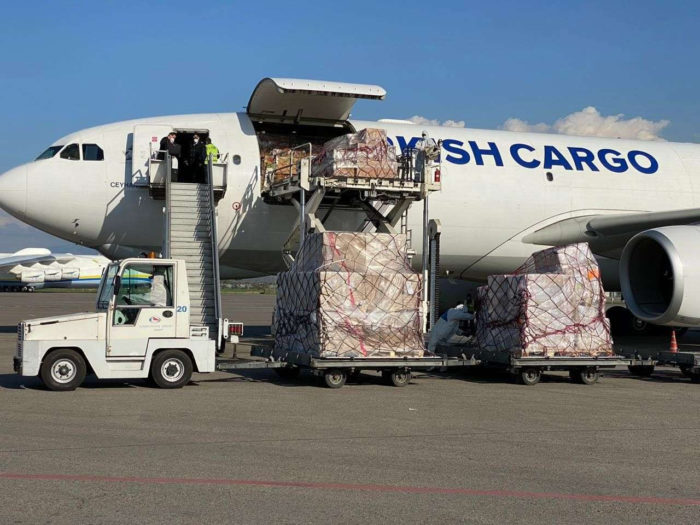
Turkish pharmaceutical company Nobel Ilaç sent medicines in April. Photo credit: Gov.kz.
Executive Director of WHO emergencies program Mike Ryan thanked countries for providing humanitarian assistance declaring that the most effective and welcome assistance comes from good neighbors, he noted. Countries who have historical links should begin to open, and trade, and work with each other in a careful and stepwise manner going forward.
“I believe across the whole sub region, from Turkey all the way through to Kazakhstan, Tajikistan, the Turkish-speaking nations have worked together very effectively in providing mutual support. I do think that the local support in sub-regions, regional coordination, both in terms of aligning response strategies, aligning exit strategies from lockdown, aligning innovation strategies, will be the key working out a way where we have enough control to be able to resume our usual social and economic lives,” Ryan said.
At the beginning of the epidemic in February, Kazakhstan provided humanitarian aid that consisted of disposable masks, medical protective suits and glasses to China.
When the new virus started spreading in the Central Asia region in spring, President Kassym-Jomart Tokayev said that Kazakhstan was ready to provide humanitarian assistance to neighboring countries.
As a result, 5,000 tons of flour per country (worth $3 million) were provided to Kyrgyzstan and Tajikistan.
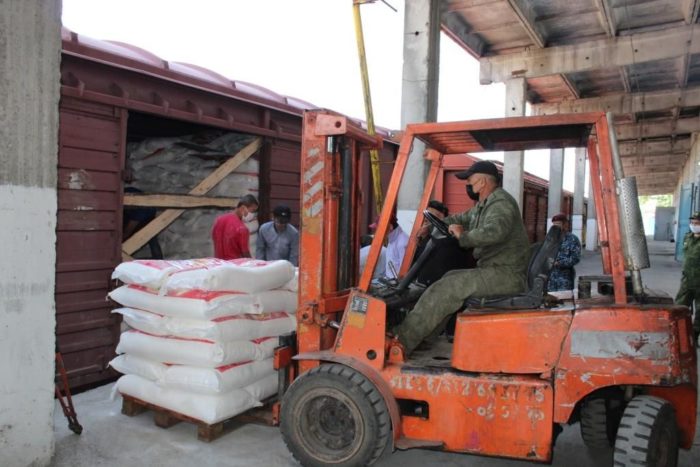
Kazakhstan dispatched the humanitarian aid to Kyrgyzstan. Photo credit: Ministry of Foreign Affairs of Kazakhstan.
“Kazakhstan, as a member of the international community, will not stand idle, but will continue to provide the necessary humanitarian assistance to partner countries affected by the global coronavirus pandemic,” reads the release of the Kazakh Ministry of Foreign Affairs.
President Emomali Rahmon of Tajikistan thanked President Tokayev for supporting his people in “during a difficult time for everyone” and for providing humanitarian assistance. He also expressed appreciation for assisting in the evacuation of Tajik citizens to their homeland and in continuing the transit of goods through Kazakhstan. The Foreign Minister of Kyrgyzstan also thanked the Kazakh government.
Humanitarian Assistance to Kazakhstan
Kazakhstan began receiving humanitarian assistance from the U.S., China, South Korea, Japan, Turkey, the United Arab Emirates, Israel and India in March.
The United States was the first country to provide support to Kazakhstan. The cargo with the mission “From the American people to Kazakhstan” arrived in Almaty on March 13.
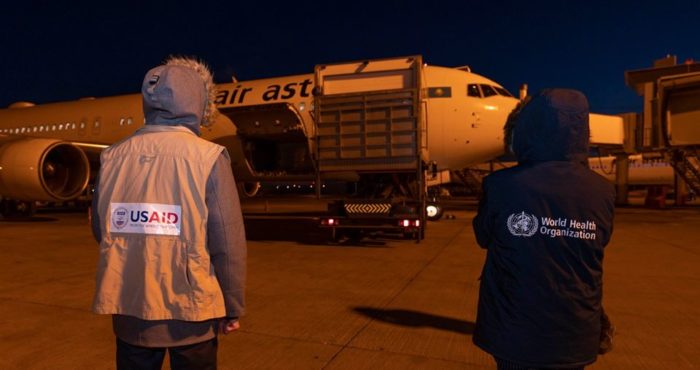
Photo credit: The U.S. Embassy in Kazakhstan.
The US Agency for International Development (USAID) and WHO donated protective equipment to the Kazakh Healthcare Ministry.
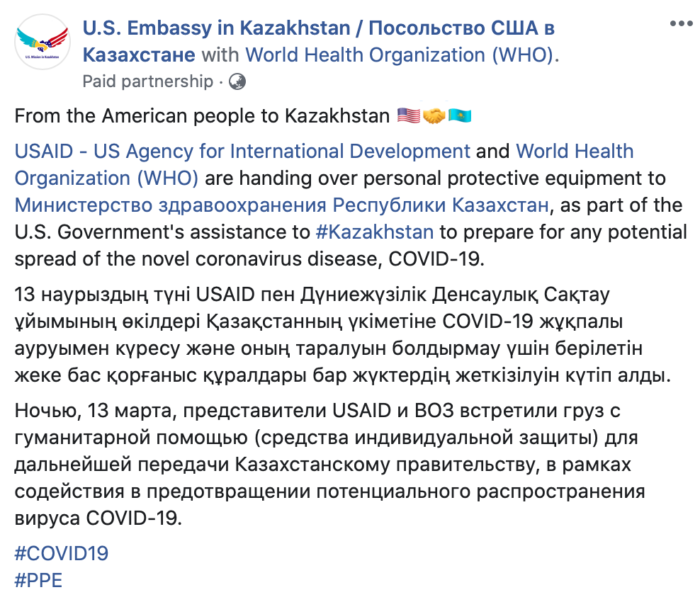
As soon as Kazakh President Tokayev and Chinese President Xi Jinping agreed on mutual assistance, China dispatched the first cargo plane with tests, gloves, glasses, gowns and other medical protective equipment straight to Almaty in early April. Regional Chinese authorities also helped Kazakhstan. Some 720,000 masks and 3,000 protective suits were also delivered to Aktobe from China all-together.
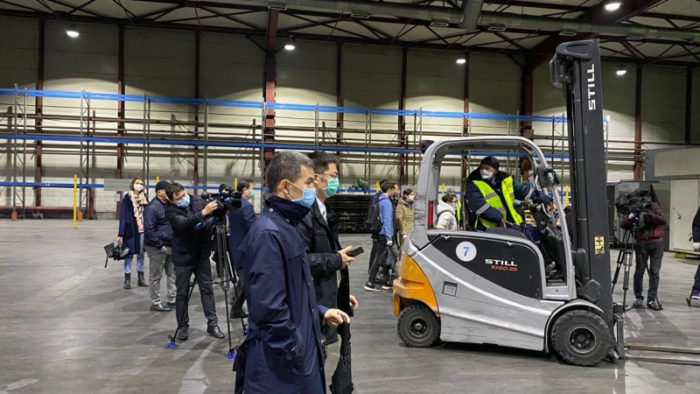
The humanitarian aid from China in Almaty. Photo credit: Ministry of Foreign Affairs of Kazakhstan.
The South Korean government provided 1,000 coronavirus test thanks to the diplomatic agreement between Kazakhstan and South Korea.
Russia pledged to provide 100 tests for standard coronavirus diagnosis and 1,250 reagent tests for sample preparation by June to Kazakhstan, according to the Russian Embassy. The provision of medicines and visits by Russian doctors will also be discussed.
Kazakhstan welcomed a group of Chinese doctors who visited Nur-Sultan, Karaganda and Almaty and brought along 4,800 N95 respirators, 49,600 disposable surgical masks, 2,000 protection suits, two ventilators and medicines.
Due to the warm and friendly relations between the two countries, the United Arab Emirates dispatched 13 tons worth of protection equipment, partial protection equipment, disposable gloves, medical masks, shoe covers, antiseptics. Medical supplies were sent to all regions including the healthcare department and territorial departments of the Ministry of Healthcare.
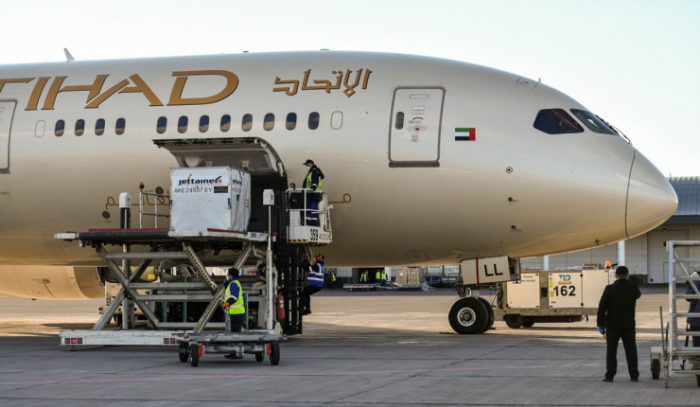
The humanitarian aid from the United Arab Emirates. Photo credit: Ministry of Foreign Affairs of Kazakhstan.
Poland offered its humanitarian aid consisting of 100,000 reusable masks of local production on a charter flight on April 13. The Princes Lubomirsky Foundation also donated laptops for Kazakh schoolchildren.
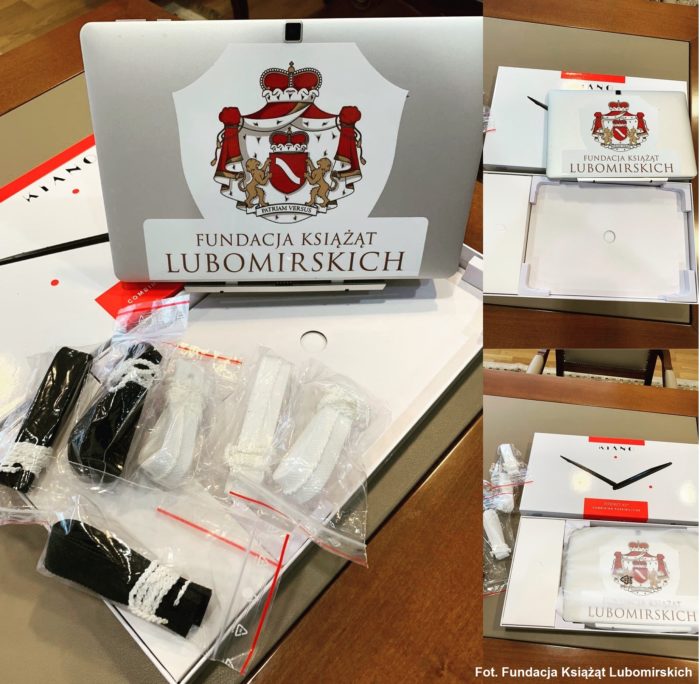
Poland provides humanitarian aid to Kazakhstan. Photo credit: The Princes Lubomirsky Foundation.
Despite the temporary suspension of air traffic due to the COVID-19 epidemic, Kazakh diplomats agreed with the Indian government to transport Kazakh citizens from Chennai and Mumbai to Kazakhstan. The Indian government dispatched more than 30,000 medicines to treat coronavirus to Kazakhstan.
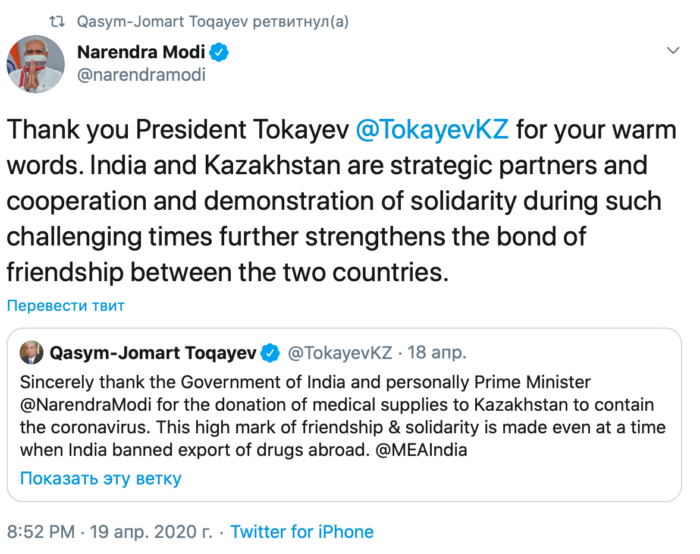
The U.S. Embassy in Nur-Sultan on behalf of the U.S. Defense Threat Reduction Agency personal protective equipment for front-line healthcare workers on April 22.
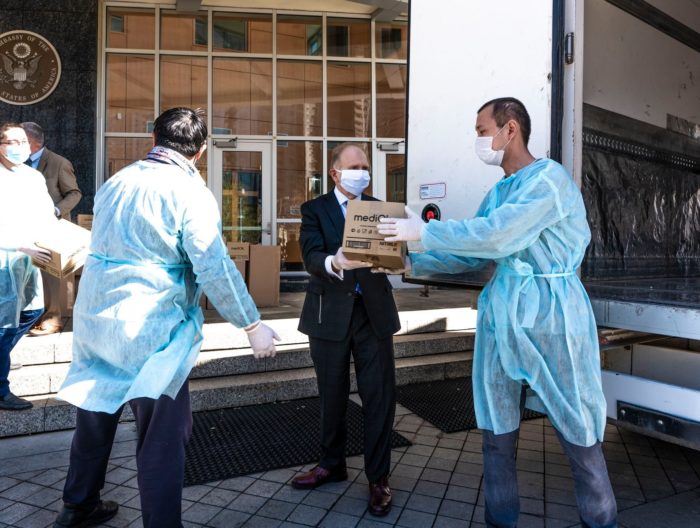
Photo credit: The U.S. Embassy in Nur-Sultan.
“I do want to thank our Defense Threat Reduction Agency for this particular contribution. In addition to this donation of PPE, we’ve announced today that USAID has allocated an additional $800,000 for assistance to Kazakhstan in the fight against COVID. Our strong partnership, including decades of cooperation between the CDC, USAID, and DTRA with Kazakhstan, will continue throughout this emergency and long after,” said Ambassador William Moser.
According to the Kazakh Ministry of Foreign Affairs, foreign companies and entrepreneurs also offer proactive support to Kazakhstan.
In mid-April, Jack Ma and the Alibaba Foundation sent humanitarian aid weighing more than 4,500 tons to Almaty. The aid included 500,000 masks, 5,000 protective suits, 50,000 medical gloves and non-contact thermometers.
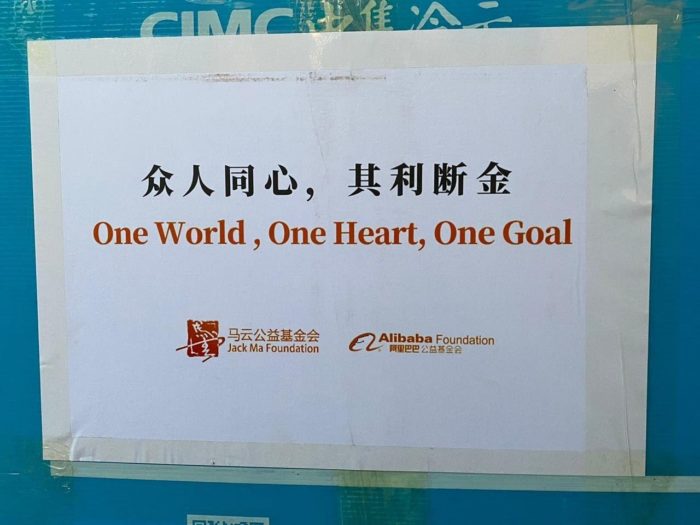
The humanitarian aid from Jack Ma and the Alibaba Foundation to Kazakhstan.
Later, the foundation donated 50,016 express tests for COVID-19 and 30 ventilation devices to Kazakhstan.
Turkish pharmaceutical company Nobel Ilaç sent a half ton of medicines in April.
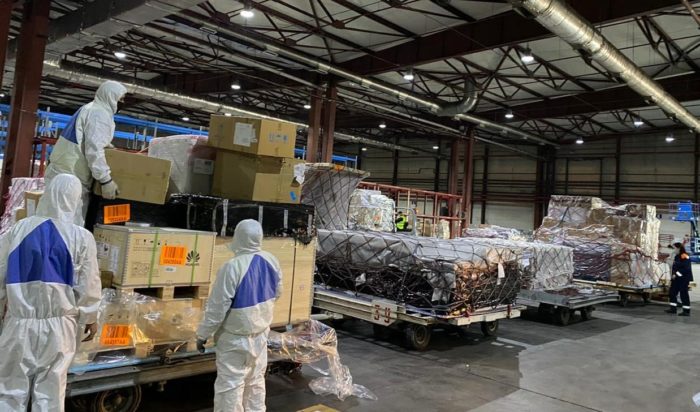
The humanitarian aid from Turkish company. Photo credit: Ministry of Foreign Affairs of Kazakhstan.
The Government of Pakistan provided 60,000 medicines to the Embassy of Kazakhstan in Islamabad on April 28.
The South Korean company SIGONGTECH with the support of the Foundation of the First President of Kazakhstan Elbasy, donated diagnostic kits for collecting samples and medical means of protection to the public healthcare department of Nur-Sultan and the Ministry of Healthcare on May 4. The aid consists of 2,000 tests, 2,500 R-Guard3000 protective suits and 20,000 containers for collecting biomaterial for analysis.

Epidemiologists from South Korea and Japan held special video consultations with Kazakh workers. Israeli specialists have also pledged to deliver epidemiological consultations soon.
